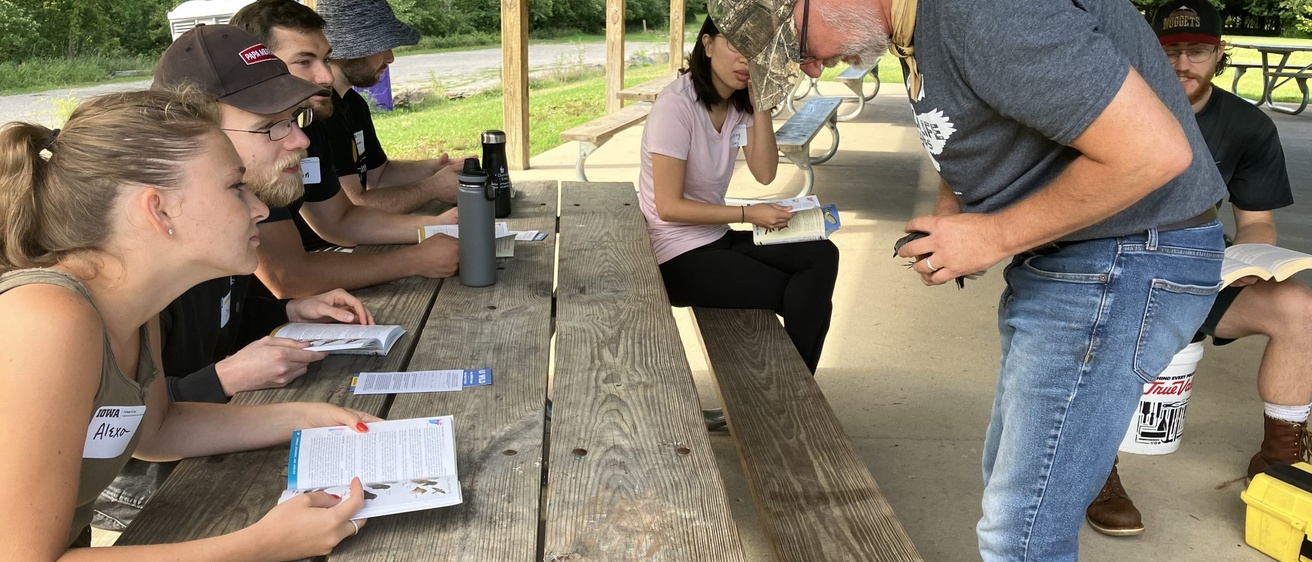The College of Law’s Hubbell Environmental Law Initiative recently launched an environmental law field course, with the help and support of the University of Iowa Wildlife Instruction and Leadership Development (UI WILD) team and the UI College of Education.
The interdisciplinary intersession course, titled “Wildlife and Habitat Conservation Law,” ran from August 14–18 and is the first of its kind at the University of Iowa. The goal is to introduce law students to the law of species and habitat protection, focusing on animals and plants located in the Macbride Nature Recreation Area (MNRA). Throughout the week, students learned how state and federal laws such as the Endangered Species Act, Migratory Bird Treaty Act, Bald and Golden Eagle Protection Act and the Clean Water Act work in practice, from experts who apply these regulatory frameworks in the field.
Learning from federal and state experts
UI WILD staff, along with their network of federal and state experts in land management and species and habitat protection, demonstrated to the class how they implement these laws through a range of practices. Students followed field experts into prairie, woodlands, and wetlands, which gave them a hands on look at conservation biology and wildlife ecology.
“This course provided law students with a unique opportunity to experience environmental and administrative laws in action,” said Ingrid Gronstal, Hubbell Environmental Law Initiative Research Fellow and course co-instructor. “The field instructors were able to demonstrate how legal and regulatory requirements, such as endangered species surveys, are carried out on the ground.”
Both the class and fieldwork portions of this intersession were held at the Macbride Nature Recreation Area (MNRA). Each morning during the intersession week, students worked with experts across several research stations within MNRA to conduct fieldwork. The experts who joined the MNRA team during fieldwork sessions were from university departments, research groups, and government agencies, including: UI WILD, the Iowa Raptor Project, MNRA, the US Fish and Wildlife Service(USFWS), UI College of Education, State Hygienic Lab, and the UI Department of Geographical and Sustainability Sciences.
